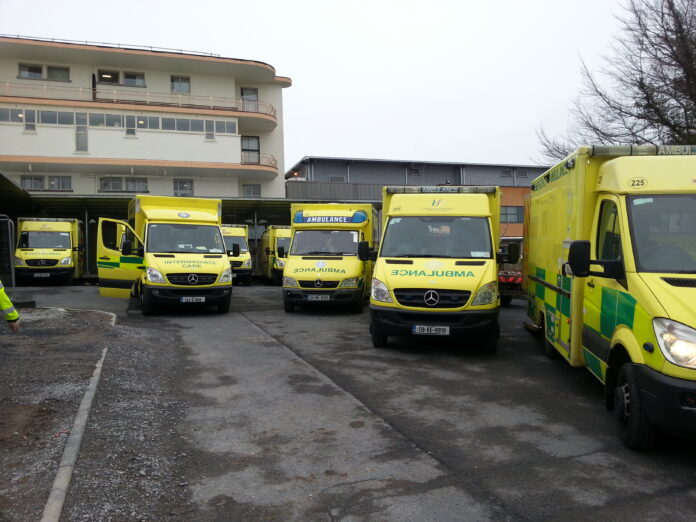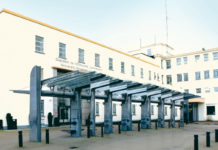
AN AMBULANCE and its crew were tied up for twelve hours recently, queueing to hand over a patient that the Emergency Department at University Hospital Limerick had no room for.
“That’s a whole 12 hour shift for a crew who had to wait with one patient when there were other people needing that ambulance’s services,” Health Sector Organiser with SIPTU Ger Kennedy told the Limerick Post.
Mr Kennedy said that the “normal time an ambulance crew would expect to spend handing over a patient is half an hour.”
“They have to stay with the patient but there wasn’t even a trolley for that patient.”
The SIPTU representative spoke with the Limerick Post ahead of joining last Saturday’s march in the city, in which 11,000 people descended on streets demanding the reopening of the Emergency Departments in St John’s, Ennis, and Nenagh hospitals, as well as an end to the hospital overcrowding crisis.
During the Christmas and New Year state of emergency at the hospital, many ambulance crews were kept waiting for four hours or more to hand over their patients and emergency vehicles were stacked 12 deep at one stage as frustrated paramedics did their best to look after the people they had brought to hospital by ambulance.
SIPTU, the union which represents members employed in the National Ambulance Service (NAS), has warned that trained paramedics are “at breaking point” due to the increase in demand and the additional pressures put on their services by overcrowded hospital EDs.
Mr Kennedy said that the people his union represents include not just frontline medical staff, but laboratory workers, cleaners, caterers “and people from every area in the health service. They all want to do the very best they can to care for the people who need them but they are not getting support from the system.”
Referencing the closure of emergency facilities in other hospitals, he said: “It’s so frustrating. No-one will acknowledge that a mistake was made in 2010. In an emergency situation, the only place for an ambulance to bring a patient is Limerick and Limerick does not have the capacity to cope.”
SIPTU Sector Organiser Ted Kenny said that “some paramedics have reported working several hours beyond the end of their 12-hour shifts, which is leading to burnout”.
“In addition to this, they are now being requested to work additional hours to assist with the current upsurge of activity being reported across the health service.”
A spokesperson for the NAS said in response to a query from the Limerick Post: “At the beginning of December, NAS activated a new Tactical Management Unit operating 24/7 to support staff and proactively manage pressures and escalations within the service for this winter and beyond began work at the start of December.”
“The Tactical Management Team works under the direction of a Senior Tactical Manager 24/7 who will work closely with acute hospital colleagues to reduce the impact of arrival to handover delays while supporting hospital turnarounds.
“The team will continue to work in this capacity following the winter period. Tactical Managers will work in collaboration with local area managers and hospital group management.”









